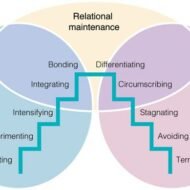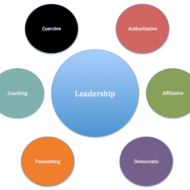Posted by Managementguru in Human Resource, Motivation, Organisational behaviour, Principles of Management, Training & Development
on Mar 31st, 2014 | 0 comments

Human Behavior- A Psychodynamic Approach In any organization, utmost importance is given to human resource management. Handling or manipulating other resources like physical, financial or production is at your discretion. When it comes to managing your employees, there you go! You start feeling the pinch. Man is like a “live wire” and if you don’t possess the mastery to understand and utilize the power behind his psyche, then you are at a loss and you are not capable of what is called “the wizard touch”. Maintaining the Employee Morale: The main problem with your subordinates or even with yourself might be boosting up of morale. Always keeping yourself in a cheerful proposition will take you to greater heights, as it helps you to achieve your goals faster. Human strength lies in self belief which is his reserved store of strength, the one which he never utilizes or not allowed to utilize to the fullest extent possible. A bureaucratic or autocratic manager should understand the fact that when human mind is given a chance to explore with full freedom instead of following orders it comes out with the greatest ideas; which may prove fruitful to your organization in a big way. Make Your Work-force Dynamic: If a person wants to become successful in a business venture, he should possess the fire of unfailing enthusiasm and the nerve to face the adversities that come in his way. Life is a game and so is business. You can play the game fearlessly when you are backed up by like minded individuals who will carry on your fire to the next level. So it is important on your part to prepare your subordinates to adapt to the different dimensions of the business atmosphere and make them more dynamic. Human mind has the power to grasp things faster than what we assume it to be. Even average performers can be transformed into star performers when, The work itself is appealing, yielding and useful The work has scope for independent activities The Work defines goals or targets The social atmosphere created by the manager is warm Innovative ideas are welcome Empathy on part of the manager The Power of Relaxation: Another important aspect for the betterment of human psyche is relaxation. A relaxed mind can achieve things hundred times better. People who are always on the run have the feeling that they have not accomplished much. If you keenly observe, only 8 hours of productive work is done every day. In order to accomplish whatever you have in your agenda, you definitely need to relax and plan. The art of resting the mind and the power to dismiss all worries and exhaustion is probably the winning formula. The employer who secures the goodwill of his employees can accomplish more with less effort and exhaustion. Try to bring out the creativity of your subordinates to make the climate of your firm cordial and the attitude...

Posted by Managementguru in Business Management, Human Resource, Leadership, Principles of Management
on Mar 1st, 2014 | 0 comments

One of the key concepts of leadership is that everyone has innate leadership skills that can be ‘polished’ and developed. In excellent organizations, everyone, regardless of title or position, is encouraged to act like a leader. One of the principles of effective leadership is “to make sure that other people will be willing to follow you. Unfortunately, management education doesn’t place enough emphasis on leadership skills.” The functions of a leader can be defined as follows: 1. Taking the initiative – A leader initiates all actions necessary for the purpose of warranting the health and growth of the enterprise in a competitive economy. 2. He identifies group goals 3. He represents the organization 4. He acts as an arbitrator 5. To assign reasons for his actions 6. To interpret the objectives of organization 7. To guide and direct the organization 8. To encourage team work 9. He manages the organization Top 50 Quotes That Show the Road to Success This exemplary leadership model by kouzes and posner will give you a fair idea on how a leader should set behavioral and performance standards in an organization. Leadership Styles Every leader has his own style that can be defined as a leader‘s behavior towards group members. It refers to the pattern of behavior which a leader embraces in influencing the behavior of his subordinates in the organizational context. Different leadership styles can be categorized as follows. 1. Autocratic Leadership Autocratic leadership is also known as authoritarian, directive, leader centered or monothetic style. Under this style, leader concentrates all authority in himself, instructs a subordinate as to what to do, how to do it, when to do it etc. He also exercises close supervision and control over his subordinates. There are three categories of autocratic leaders a. Strict Autocrat – A strict autocrat believes on negative authority and gives orders which the subordinates must accept. He may also use his powers to disperse rewards to his group. b. Benevolent Autocrat – The benevolent style aids in accomplishing high productivity in many situations and he can develop effective human relationship. His motivational style is usually positive. c. Manipulative Autocrat – A manipulative autocrat leader is one who makes the subordinates feel that they are participating in decision making process even though he has already taken the decisions. 2. Participative Leadership This style is also called as democratic, consultative, group centered or ideographic style. A participative leader is one who consults and welcomes his subordinates to participate in decision making process. Under this style, subordinates are freely allowed to communicate with the leader and also with their fellow subordinates and take their own initiative. 3. Laissez Faire or Free-rein Leadership Under this style of leadership, the leader mostly depends upon the group and its members to establish their own goals and make their own decisions. The leader is passive and assumes the role of just another member in the group. Only very little control is exercised over group members. This style is also known permissive style of leadership. This style is appropriate only in certain situations where the manager can leave a choice to his groups. A leader is supposed to possess these discretionary skills required at different times and during interaction with different people… Qualities of a successful leader The following are the major innate qualities in a successful leader. 1. Physical features like height, weight, health and appearance 2. Intelligence 3. Emotional stability 4. Human relations 5. Empathy 6. Objectivity 7. Motivating skills 8. Technical skills 9. Communicative skills 10. Social...




